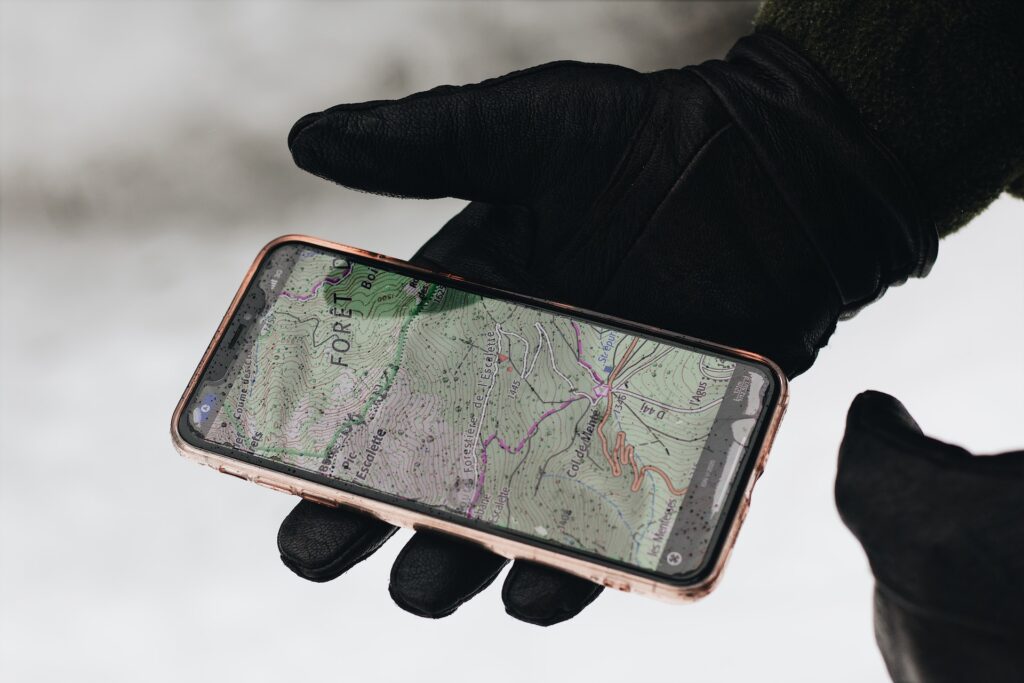We often have people send us emails asking “are car trackers illegal?”. And while we’ve touched on the subject in other articles on this website we’ve decided to dive in a little deeper.
In this article, we’ll explore this topic, delve into the laws that govern their use, and discuss the benefits and potential drawbacks associated with their usage. Additionally, we will touch upon the specific laws, such as the Protection of Personal Information Act (POPIA) and the Regulation of Interception of Communications and Provision of Communication-Related Information Act (RICA), that apply to car trackers and explain their requirements. By the end, you’ll have a comprehensive understanding of the legal landscape surrounding car trackers in South Africa.
Ready? Let’s go!
Car trackers, also known as vehicle tracking systems, have become increasingly popular in South Africa as a means to improve security and protect against theft. They’re designed to provide real-time information about the location of a vehicle, as well as other important data such as speed and fuel consumption.
Despite their benefits, there is some confusion surrounding the legality of car trackers in South Africa. In this article, we’ll explore the legality of car trackers in South Africa and provide an overview of the laws that govern their use.
We’ll also discuss the benefits and drawbacks of using a car tracker, including both security and privacy concerns. We’ll also look at the future outlook for car tracking technology in South Africa – simply because laws change over time and staying ahead of changes can prevent wasted time and resources.
The definition of a car tracker (very important for legal purposes)

Car trackers are electronic devices that can be installed on a vehicle to monitor its location and other data related to its operation. These devices typically use GPS technology to track the location of a vehicle in real time, allowing owners or operators to know where their vehicles are at all times.
In addition to providing location data, many car trackers can also provide information about the speed at which a vehicle is travelling, fuel consumption rates, and other important operational data. This information can be valuable for fleet managers who need to optimise routes or reduce fuel costs.
The legality of car trackers in South Africa

Car trackers are becoming increasingly popular in South Africa due to the high levels of car theft and hijackings. However, before installing a car tracker it is important to understand the laws governing their use in South Africa.
Overview of the laws governing car trackers in South Africa
The use of car trackers is governed by various laws and regulations in South Africa, including the Protection of Personal Information Act (POPIA) and the Regulation of Interception of Communications and Provision of Communication-Related Information Act (RICA).
POPIA regulates the processing of personal information, including location data collected by a car tracker. RICA regulates the interception and monitoring of communications and includes provisions on tracking devices that are capable of intercepting communications.
Protection of Personal Information Act (POPIA)
The Protection of Personal Information Act (POPIA) is a comprehensive data protection law that regulates the processing of personal information in South Africa. Car trackers, by collecting and transmitting location data, fall within the scope of POPIA.
Under POPIA, individuals have the right to privacy and control over their personal information. When using car trackers, it is crucial to obtain the explicit consent of the vehicle owner or driver before installing the device. The collected location data must be processed lawfully, fairly, and for specific purposes, and adequate security measures should be implemented to protect the data from unauthorized access or breaches.
Regulation of Interception of Communications and Provision of Communication-Related Information Act (RICA)
The Regulation of Interception of Communications and Provision of Communication-Related Information Act (RICA) primarily focuses on the interception and monitoring of communications. It includes provisions regarding tracking devices capable of intercepting communications, which can be applicable to certain advanced car tracking systems.
RICA regulates the use of tracking devices that can intercept communications, and their usage is subject to certain legal requirements. If a car tracker has the capability to intercept or monitor communications, it may be subject to the provisions of RICA. Therefore, it’s important to ensure that the installation and usage of such tracking devices comply with the provisions of RICA and obtain any necessary permissions or authorizations as required by law.
It’s important to note that the specific requirements and obligations under POPIA and RICA may vary, and it’s advisable to consult the relevant legislation and seek legal advice to ensure compliance when using car trackers in South Africa.
Are car trackers illegal?

Whether or not a car tracker is illegal depends on the type of car tracker being used (and its functionality) as well as whether the owner gave consent to the installation of the tracker as well as whether the driver is aware of its presence.
If a car tracker is installed without the knowledge or consent of the vehicle owner or driver, it may be considered illegal under POPIA. On the other hand, if a car tracker is installed with the owner’s consent and used only for legitimate purposes such as theft prevention or fleet management, it’s likely to be legal.
Different types of car trackers and their legality
There are various types of car trackers available on the market today, ranging from basic GPS tracking systems to more advanced systems that include features such as immobilisers or remote engine shutdown. The legality of these different types can vary depending on their capabilities.
Basic GPS tracking systems that do not interfere with a vehicle’s operation are generally legal for private use. However, more advanced systems that can interfere with a vehicle’s operation or intercept communications may be illegal under RICA or other laws.
Analysis of the legal implications of using or not using a car tracker
The legal implications for using or not using a car tracker depend largely on the individual situation.
In terms of insurance implications, failing to install a car tracker when required by an insurance policy may result in higher premiums or even the voiding of the policy. Using a car tracker may help reduce premiums and can also aid in the recovery of a stolen vehicle.
While there are specific laws and regulations governing the use of car trackers in South Africa, their legality ultimately depends on how they are used and whether they comply with these laws. It’s important to understand these laws before installing a car tracker and to use them responsibly.
Benefits and drawbacks of using a car tracker in South Africa

Advantages of using a car tracker
Car trackers have become increasingly popular in South Africa, with many benefits to both individual car owners and businesses alike. One of the main advantages of using a car tracker is improved security. Car theft is unfortunately common in South Africa, but the use of a car tracker can help recover stolen vehicles quickly and efficiently.
Car trackers offer real-time location updates, so if a vehicle is stolen, its whereabouts can be quickly located and recovered. Another advantage to using a car tracker is the potential for reduced insurance premiums.
Many insurance companies offer discounts for vehicles that have an active tracking device installed, as it reduces the risk of theft or damage. This means that using a car tracker not only provides added security but could also save you money on your insurance premiums.
For businesses with fleets of vehicles, the use of a car tracker offers an efficient way to manage their fleet. With real-time location updates, managers can monitor their entire fleet from one central location, ensuring that vehicles are being used efficiently and safely.
Disadvantages of using a car tracker
While there are many advantages to using a car tracker in South Africa (and these outweigh the disadvantages), there are also some potential drawbacks that should be considered.
One concern some people may have about using a tracking device is privacy concerns. It’s important to note that all tracking devices must adhere to privacy laws and regulations in South Africa. As long as these laws are followed correctly by the provider, privacy should not be an issue.
Another potential drawback to consider when deciding whether or not to use a tracking device is cost implications. We give an overview of car tracking prices from some of the major brands in the country for your convenience, check it out. in another article The initial installation costs can be expensive depending on the type of device chosen and whether it requires professional installation or not. Additionally, there may be ongoing monthly fees associated with maintaining an active subscription service for the tracking software.
It’s important to note that car trackers are not foolproof. While they can improve the chances of a stolen vehicle being recovered and provide valuable information for fleet management, they do not guarantee 100% security.
It’s important to still take other precautions to prevent theft or damage, such as locking doors and windows and parking in well-lit areas. Overall, the benefits of using a car tracker in South Africa outweigh the potential drawbacks.
Improved security, reduced insurance premiums, and efficient fleet management are just a few of the advantages that come with using this technology. As long as privacy laws are adhered to and all costs associated with installation and maintenance are taken into account, using a car tracker can be a smart decision for car owners and businesses alike in South Africa.
The future outlook for car tracking technology in South Africa

Technological Advancements and their impact on the use and legality of car trackers in South Africa
Car tracking technology is constantly evolving, and with it, so are the laws governing its use in South Africa. Advances in GPS technology have made car trackers more accurate and reliable, but they have also raised concerns about privacy and data protection.
As a result, lawmakers are under pressure to strike a balance between ensuring public safety and protecting citizens’ rights. One significant development is the integration of car trackers with other smart technologies such as dashcams, remote locking systems, and driver assistance features.
This means that car owners can now monitor their vehicles from virtually anywhere, using their smartphones or other internet-enabled devices. However, these advancements come with challenges related to cybersecurity risks, which may expose the personal information of drivers or passengers to unauthorised access.
Predictions on how the use and regulation of car tracking technology will evolve over time
As car tracking technology becomes more prevalent in South Africa, it is likely that regulations will become more stringent to ensure greater accountability among users. Government agencies may also play a greater role in overseeing the industry to safeguard consumer rights while ensuring that the use of the technology remains legal. Another area where change is expected is in insurance premiums.
As insurers collect more data about driver behaviour from connected cars equipped with trackers, they may adjust premiums accordingly based on driving behaviours like speeding or harsh braking. This could result in lower premiums for safer drivers who demonstrate responsible driving behaviour by avoiding accidents or traffic violations.
Technological advancements will continue to shape how car tracking works for different types of vehicles. For instance, electric vehicles may require specific software updates since charging patterns can impact battery range estimates provided by some GPS tracking systems.
Looking for a car tracker company?
Our article on the top 5 car tracking companies in South Africa has done exceptionally well with so many consumers leaving feedback and commenting on what they liked (and didn’t like) about the company or companies they were using.
We told you about Track My Stuff (affiliate link) which allows you to compare car tracking prices from five of the leading providers in the country with one quick and easy application. This ensures that you not only find the right product for your specific needs but that you can compare the installation and monthly fees involved. Just like with car insurance, you should avoid taking out cover before applying for and comparing multiple quotes – so that’s why we recommend it. The service is completely free.
So, are car trackers illegal?
It’s clear that using a car tracker is not illegal. However, the use of a car tracker can raise ethical considerations regarding privacy invasion. It’s essential to understand the laws concerning car tracking devices and to comply with them – especially if you’re a business owner and have a fleet.
